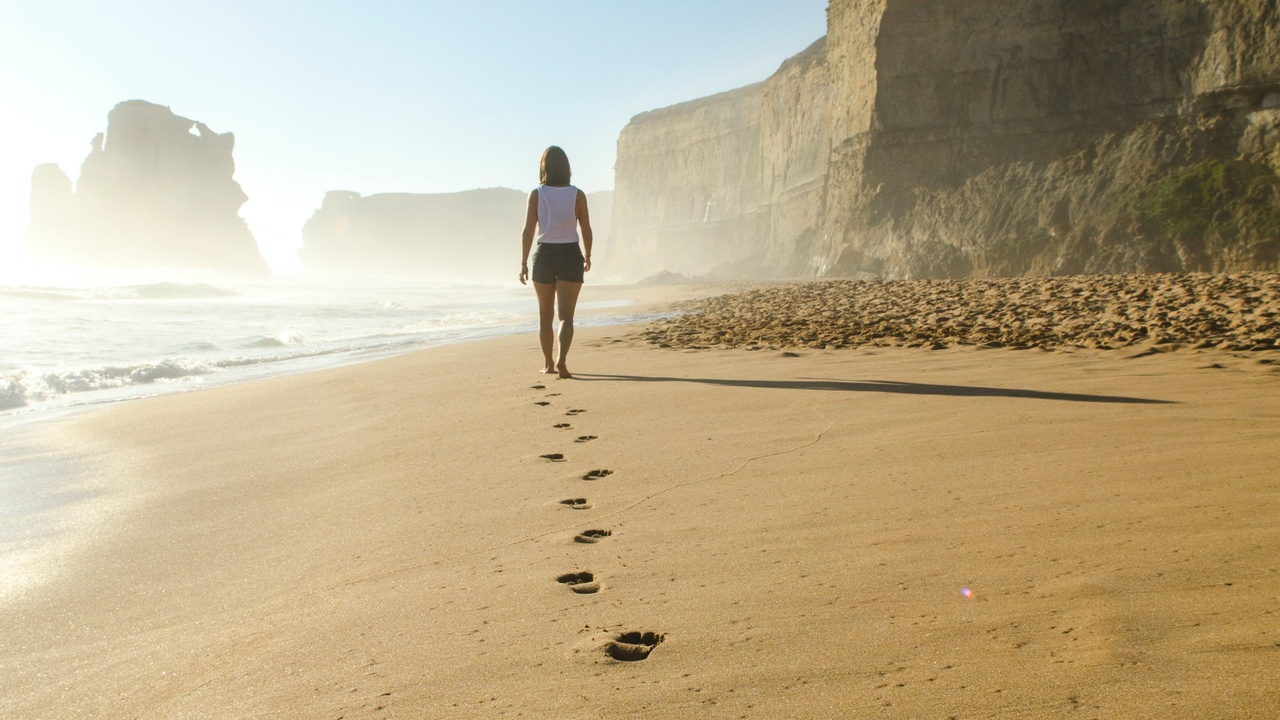Walking Back to Happiness
Aug 05, 2021
Our Most Natural Movement
Walking is the best way to improve lower body, reproductive and digestive circulation; in fact any activity that moves the whole body around is beneficial, although cycling can restrict the pelvic area. Physiologically we are designed to walk to get the whole circulation moving and it should be regular, in short doses throughout the day. The lymphatic system does not have a pump like the bloodstream and the heart, and relies on your movement, which is therefore an important part of supporting your immune system. The naturopath Marion Kirkham states “It is the avoidance of being sedentary which is vital; so those who sit at their desks, then lie on their sofa and then go to the gym several times a week are not helping their circulation. This is inconsistent and unnatural.”
The US Surgeon General has recently recommended 10,000 steps per day and it is widely recognised that a minimum of 2 miles a day will keep your circulatory system in working order. If a person has trouble walking, passively helping the circulation can be difficult, but there are good machines available that can move the legs and stimulate the circulation whilst sitting or lying.
We have large muscles in the legs that are designed to support our posture, especially the calves and thighs. This is another reason why walking is so important, calf muscles are particularly important for circulation. Being truly non-sedentary means moving around all the time. Your pelvis is supposed to move in harmony with your chest and ribs and walking creates a very natural movement and helps to avoid conditions such as constipation, infertility, prostrate problems and endometriosis. Part of the reason is that good circulation is necessary to deliver nutrients to the places in the body where they are needed and used; a sedentary life can help cause and exacerbate deficiencies and symptoms. All aspects of health rely on continual natural movement.
Paul Chek HHP NMT states in his article The Power of Walking, that walking is “one of the most primal movements known to man. Because bipedal walking became essential to our survival …….., our bodies have developed in such a way that walking and movement are essential to health; as they say, form follows function”.
He describes several key benefits from walking that will increase all round health:
- Increases enzyme activity and other metabolic activity, so you use up more calories and draw in nutrients from food and supplements.
- Supports peristalsis, the movement of food through the digestive tract and helps to prevent constipation.
- Increases the desire to drink water, helping detoxification and digestion.
- Helps mental function by nourishing the nervous system
- Synchronises breathing with movement, fully oxygenating the body.
- Keeps the internal organs mobile and healthy.
- Emotional well being; when a body is sluggish, so is the mind.
Like all good therapists, Chek recognises the importance of linking the physical with the emotional; when we behave as naturally as possible, our bodies reward us with feel-good chemicals like endorphins as we are essentially promoting the survival of the species. He says “Uneven terrain stimulates the use of many different movement patterns, further assisting in massaging of organs, pressure changes and increased circulation.” So getting out of towns and onto natural ground will reward much more than just your sense of adventure!
This certainly should not be news to you, maybe not the technical parts, but you know that you feel better when you move around and use your muscles, limbs and breath to their full capacity. We want to reiterate that exercise and particularly walking, is a fundamental part of nutrition. If you want to look after yourself, eat well, take supplements and be conscientious about your health.
Here come the obvious bits; don’t take the lift, take the stairs, get off the tube or bus one stop earlier, get a dog, make walking a regular before work activity, don’t drive when you could walk. 10,000 steps is really not that much in the course of a day; in total it probably takes under an hour – very little for the free benefits you get and you certainly should not be sitting on your behind for the rest of the 15 hours that you are conscious. You can imagine the effort the circulation would have to make without a helping hand from motor activity – really a losing battle.
So buy a pedometer, they cost about £10 from the high street and the actual counting of how many steps you have done can really spur on motivation. If you do not breathe naturally through your nose or have shallow or difficult breathing, learn yogic or pilates techniques to help you and practise these whilst walking; that is actually part of a traditional Buddhist form of meditation and very good for bringing down stress levels.
Discover Whole Health with Charlotte here, featuring access to yoga classes, meditations, natural health webinars and more...




